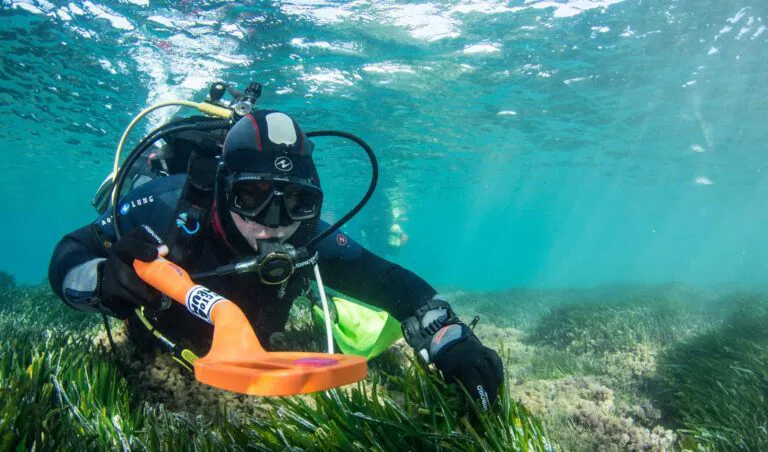Copyright euroweeklynews

Murcia Project Wins EU Award for Cleaning Hidden Ocean Pollution The Hippocampus Association has won the BlueMissionMed Society4Med 2025 award for its Plumbum Project, a community-driven initiative dedicated to removing toxic lead from the sea and coastal areas. The award is part of the European Union’s mission to restore oceans and waterways by 2030, encouraging cleaner, healthier, and more sustainable marine environments across the continent. Tackling a hidden threat beneath the waves Launched in 2017, the Plumbum Project focuses on removing lead, a dangerous heavy metal that often goes unnoticed because it sinks to the seabed. Despite being invisible to most, lead poses a serious risk to marine life and human health, contaminating ecosystems and entering the food chain through fish and shellfish. Over the years, the project has grown from a small local effort into a large-scale movement, bringing together divers, local schools, fishing groups, aquarium staff, and residents from across the Region of Murcia. Their shared goal is simple but powerful: to make the Mediterranean cleaner, safer, and more sustainable for future generations. Thousands join the effort Since its launch, the Plumbum Project has attracted nearly 1,200 divers and 550 volunteers, all donating their time to locate and safely remove pieces of lead from the sea. So far, they have collected almost two tons of lead, much of it in the form of fishing weights and other small fragments, over 25,000 individual pieces in total. Instead of discarding the recovered material, the team ensures that every piece is recycled by licensed waste managers, who turn the lead into new diving weights. This practical approach not only reduces pollution but also demonstrates how recycling can transform harmful waste into something useful, cutting down on both environmental damage and carbon emissions. Recognition for environmental innovation The BlueMissionMed Society4Med award jury praised the project for its strong community involvement and for offering a model that could be successfully replicated elsewhere in Europe. The judges highlighted the project’s ability to combine citizen science, environmental awareness, and recycling, three pillars of the EU’s ocean restoration strategy. This recognition also draws attention to the importance of grassroots environmental action in coastal regions like Murcia, where local communities are often the first to notice the impact of pollution on marine life. By engaging people of all ages and backgrounds, the project has helped raise awareness about how individual actions can make a collective difference. A cleaner future for Murcia’s seas The Plumbum Project continues to grow, with more dive clubs, schools, and local authorities showing interest in getting involved. Its success shows that meaningful environmental change doesn’t always require big budgets, just cooperation, persistence, and a shared respect for the sea. As the EU pushes forward with its 2030 goal to restore Europe’s waters, Murcia’s coastline stands as a shining example of what can be achieved when science, sustainability, and community come together for the good of the planet.



